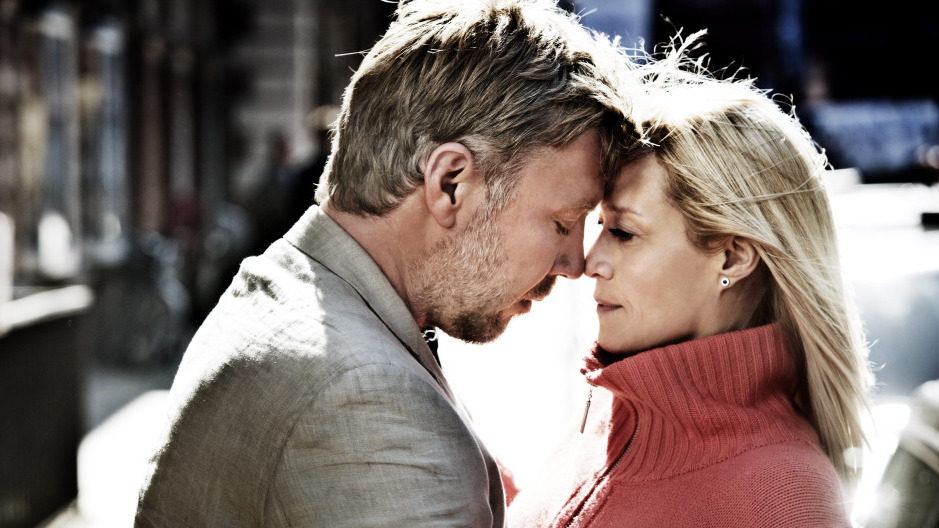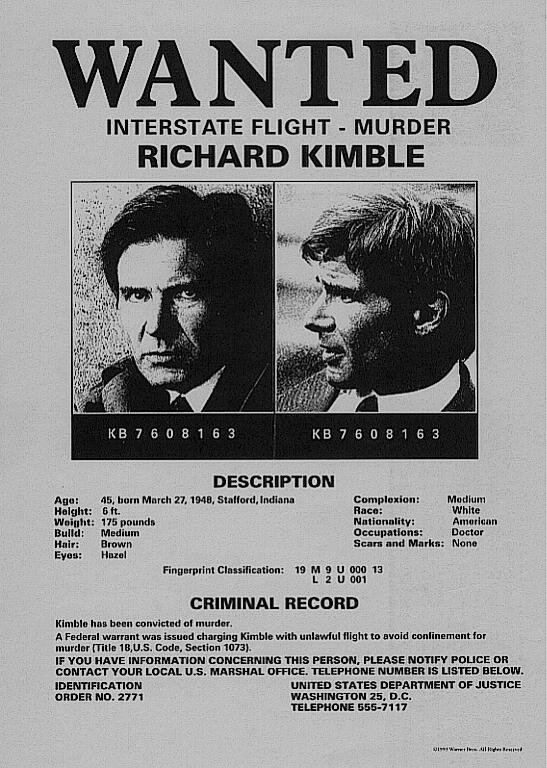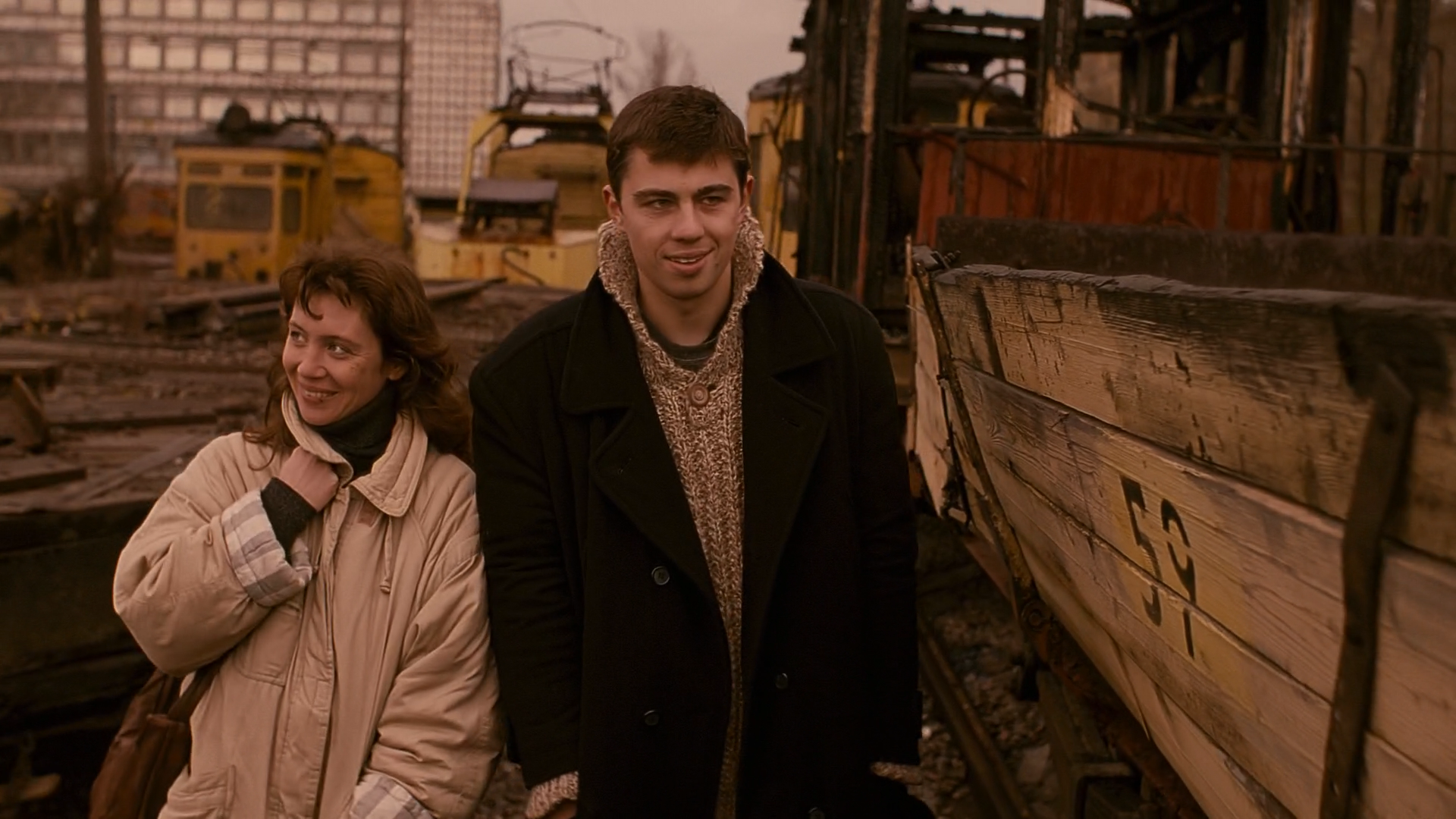In a Better World
 Monday, July 17, 2017 at 13:50
Monday, July 17, 2017 at 13:50 Translations of foreign film titles are rarely felicitous, but few seem as ill-chosen as the English rechristening of this film. Properly, the Danish Hævnen would be rendered as "an act of vengeance," or simply "revenge," not only a far more appropriate name given the plot, but also a more personal one conveying the basic moral premise of individual responsibility and individual consequences. Before a viewer is provided the opportunity to make up his own mind, however, the English variant implies that responsibility is shifted from individuals to circumstances, to a malefic world at large. This impression is rectified by the film's events, but not without some of the characters evincing a few doubts of their own. And especially dubious are two twelve-year-old schoolmates, Christian (William Jøhnk Nielsen) and Elias (Markus Rygaard).

As is common in such friendships, Christian and Elias are bound together by each other's weaknesses. Christian is the newest student, obviously from a family of affluence as his last institution of learning was a London boarding school, but he is also, we learn early on, a victim of a great tragedy. Elias is a half-Swede whose father is conspicuously absent, although far from vanished. That Christian's father Claus (Ulrich Thomsen) chooses to move back to Denmark in the wake of his wife's final battle with brain cancer may strike the viewer as unusual, given that Christian probably has more family memories in his native land than abroad. That said, adjusting to a different environment remains one of the most proven methods of coping with loss (another method, working day and night with little concern for one's well-being, is the strategy adopted by Claus). This leaves Christian the time, resources, and lack of supervision he requires to wreak havoc upon the world that swallowed up his mother. His first step in avenging her is to defend Elias from a bully, a three-vignette sequence that yields a bloody nose, a brutal beating, the repeated intervention of the local police, and a weird and somewhat unconvincing truce. A more captious critic than I might object that the school bully, an Aryan thug by the name of Sofus, quits our view a little too quickly, having served only to solder together our two young protagonists. But the theme of bullying and vengeance is taken up anew with the appearance of Elias's father, Anton (Mikael Persbrandt).
The lone Swede amidst a passel of Hamlet's countrymen, Anton literally speaks his own language and is understood more or less completely. And while it is widely known that Norwegians, Swedes, and Danes have mutually intelligible tongues, the distinctions can (and, in our case, will) be used against the outsider. For a number of reasons, Anton emerges as the film's compass: he is the father of Elias and a smaller boy, Morten (whose name is tattooed above his heart); he is estranged from his wife (Trine Dyrholm), who cannot forget a past indiscretion; and, least importantly for our purposes even if, at first, quite the opposite may seem true, Anton spends half the year as a doctor in a never-identified African country (the local language and difficulties suggest Sudan). Africa in its most miserable regions has a tendency to render upper middle-class domestic disputes and coming-of-age stories woefully trivial, precisely the problem when the movie is not really about Africa, but about two boys in Denmark. Most lamentable about the half-dozen glimpses into a realm where few Europeans would be brave enough to test their moral fortitude is that the out-of-Africa quandaries eerily parallel the Scandinavian. As these scenes are discrete from the Danish episodes, the discerning viewer may secretly hope that Africa only exists in Anton's mind as a memory or wild dream of his conscience (alas, one vignette ensures us that this cannot be so). Predictably, therefore, Anton's healing of victims of hideous crimes, some of them the age of his own children, have drawn both the most praise and the most ire from critics, the latter of whom view the whole exercise as manipulative – but such an assertion misses the point. All cinema, even documentary, is manipulative: however nominally objective the director may be, you are simply never privy to the whole picture. This criticism is better directed at the non-diagetic music, which is most always cloying and which regrettably megaphones just when we need no reminder of the emotions we are supposed to feel at that very moment.
We have forgotten, in all this politically correct brouhaha, our unfledged heroes and their tribulations, but that's just as well. We know that the boys will embroil themselves in more than just a fistfight; we also know that they will lie both to one another and their parents as they deepen their hole with the keenest of spades. What we do not know and, indeed, herein lies the charm of such melodramatic machinations, is what if anything will be the consequences of their actions. That is to say, in a world that could and should be better, we are inclined to believe that people get away with much more than we could ever imagine. In a Better World clearly knows right from wrong (all too clearly, I fear, for many critics who likely gorge themselves on films they deem "morally ambiguous"), and what happens when the boys elect to avenge a perceived affront against one of their fathers concludes plausibly, if not necessarily as one might expect. This formula, if that is really the fairest term, has been previously employed by the director, with varied results. Bier's most famous film likewise urges the viewer to connect two very different worlds, yet does not end in atonement or even peace, but in a feeling that almost any emotion would be permissible, so wicked was the experience of one of the characters abroad (while this film, also about a Scandinavian doing wonderful things for the impoverished in a foreign country, is far more effective because the abroad is intrinsically tied to the plot). Nevertheless, as in all Bier productions, the acting is splendid (Dyrholm and Rygaard are particularly outstanding), and we are compelled to watch because these young boys are granted vivacity, fear, a sense of humor, purposefulness, and enough intelligence to be held accountable for their choices; at several junctures in the film, I distinctly felt I was observing sixteen- or seventeen-year-olds. So when Claus confesses something very controversial to his son, and gets punched and insulted for his efforts, we understand why Christian has little if no compunction for his misdeeds and why, for him, the world could not be any worse. And we pity him just as much as any little boy anywhere who has been deprived of that most basic children's need, parental love. We just hope he knows that adulthood might show him how many other deprivations exist on this earth.




